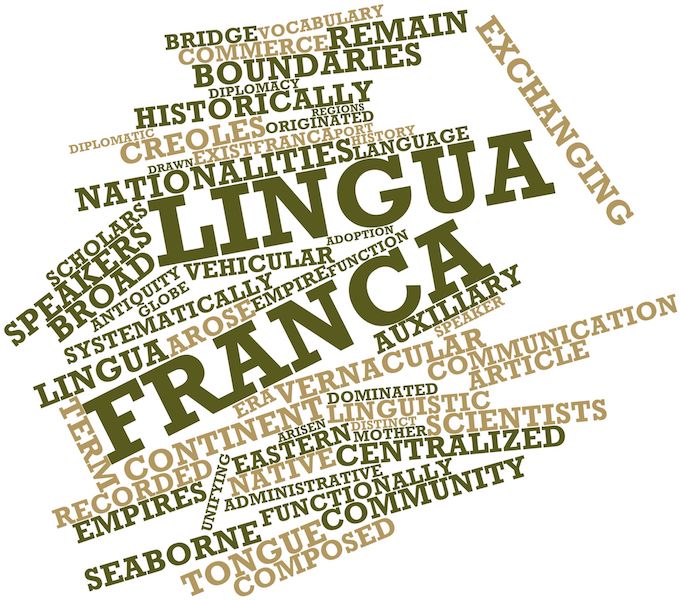Learning Malay For Preschoolers
by on 07/05/2018 ...

Most Important
Do you know that English is not the most widely spoken language in the world? Here are some statistics of 10 most spoken languages in the world:
- Mandarin (1197 million)
- Spanish (406 million)
- English (335 million)
- Hindi-Urdu (260 million)
- Arabic (223 million)
- Portuguese (202 million)
- Bengali (193 million)
- Russian (162 million)
- Japanese (122 million)
- Javanese (84.3 million)
The statistics above were based on the number of native speakers. Notwithstanding, the English language still holds an important position in today’s world. It’s also important to note that there’s a significant difference between “the most widely spoken” and “the most important.” Whilst English may not have the highest number of native speakers, the language nonetheless holds a rather dominant position around the globe at the moment.
Lingua Franca
The age of discovery that began in the 15th century until the end of the 18th century has contributed greatly to the proliferation of the English language outside of North-western Europe. In other words, English was the language of colonisers. European empires explored the world to obtain new land, gold and spices, among others. And in so doing, they exported not only their culture, institutions, laws and politics but also their language. We have often heard the remark that says, “English is the lingua franca of knowledge in today’s world.” But, what exactly is lingua franca? Lingua Franca can be defined as an agreed language used for communication between two individuals who apparently do not share their first language. Bear in mind that languages such as Egyptian, Chinese, French, Greek, Latin, Hebrew, or Arabic were once deemed to be lingua franca. How did these languages achieve such status? It was either by military expansion, economic power or by religious power.

What about today’s lingua franca? Today’s lingua franca is English. Why? It simply is. English was also the language of industrial revolution. It’s therefore unsurprising when one sees almost all of today’s important domains of knowledge the world over, be they the sciences, liberal arts, technology, economy or sports, they are typically communicated, taught, written and published in English. Not forgetting that English is also the primary language of the internet, publishing, electronic games, computers and all its program and software. Another important point to consider is The Nobel Prize in Literature. The prize is awarded only to works of literature that are written only in English or works that have been translated into English. It goes to show that English is such an important language; that the language carries such dominance, albeit implicitly. These are the fact that everyone cannot argue with. English is undeniably very important.
Learning Malay
So, why strive to be competent in the Malay language if English is far important? As a parent, and a Malaysian, why should I emphasise the importance of learning Malay to my pre-schoolers? The answer is simple. Fostering nationalism. Nelson Mandela has once said, “If you talk to a man in a language he understands, that goes to his head. If you talk to him in his language, that goes to his heart.”
Bahasa Malaysia is the official language of our country. Our national anthem is in Malay. We sing our national anthem in Malay in schools. Remember? Also, language carries more than what its words were meant to signify. Our national language represents our culture as a whole. They’re our identity.
Prof Datuk Dr Teo Kok Seong, Principal Fellow of the Institute of Ethnic Studies at Universiti Kebangsaan Malaysia once remarked that “You must always remember that Bahasa Melayu is not the language of the Malay people, but the language of the country.” Whilst Malay may not be the most important nor the most widely spoken language in the world today, it nonetheless remains our one and only national language.

Ways To Improve National Language Proficiency Among Pre-Schoolers
1) Conduct more fun activities in Bahasa such as role-plays, storytellings, and games in schools and homes. For parents, specify a week or two in a month where everyone at home speaks BM for daily communication. These activities prove particularly useful for pre-schoolers whose first language isn’t Bahasa Malaysia.
2) Apart from school, consider signing your pre-schoolers up for Bahasa classes outside of school. Search for good nearby centres that offer such classes. Ask for a recommendation from someone who has experience sending their kids to such centres. .
3) Alternatively, you may encourage your pre-schoolers to give Bahasa Malaysia writing or speaking competitions a try. These competitions are typically organised by Malay-language newspapers, such as UTUSAN MELAYU. They can be very helpful in helping your pre-schoolers to be more proficient in Bahasa.
4) Buy entertaining Malay-language fiction novels and ask your kids to read them. They can be fun. Check FIXI.. FIXI has a massive collection of Malay-language books. FIXI has also translated some well-known English works into Bahasa Malaysia.





























